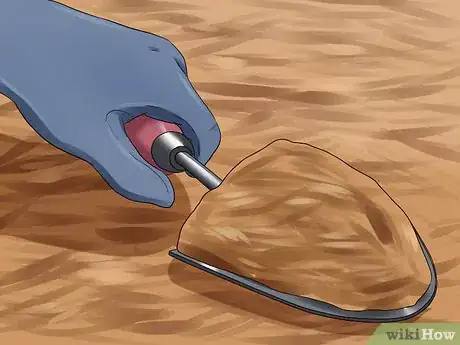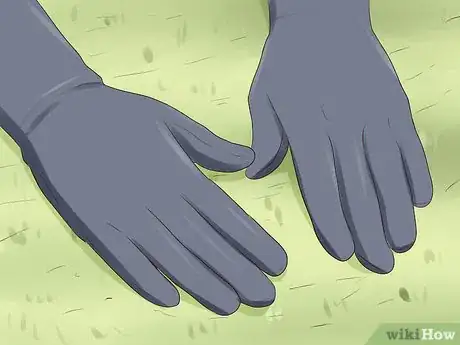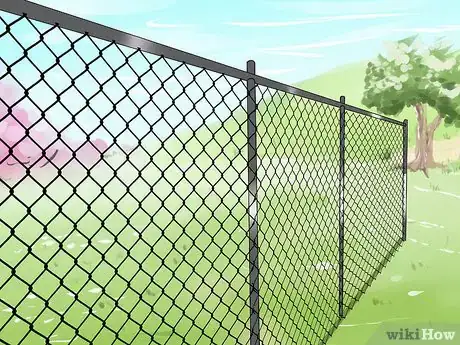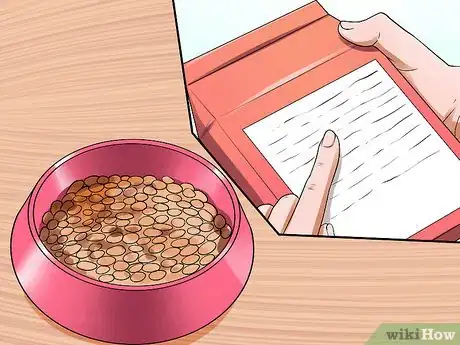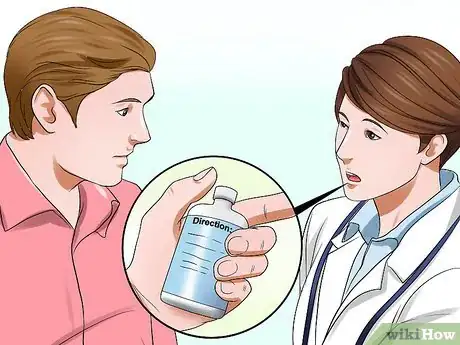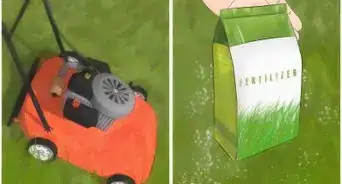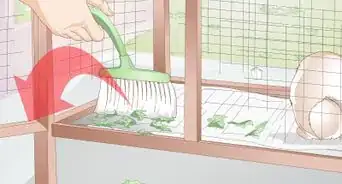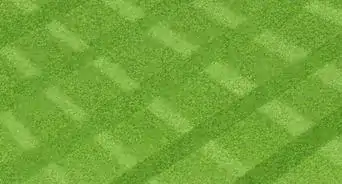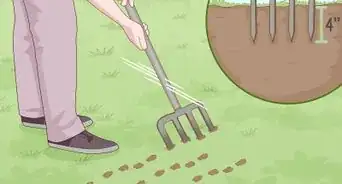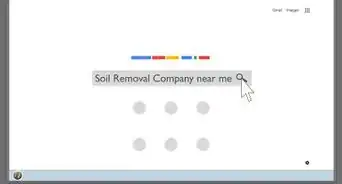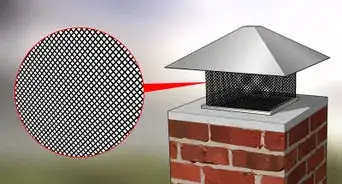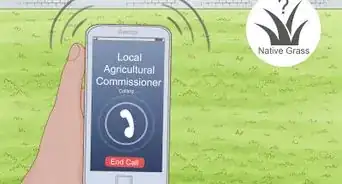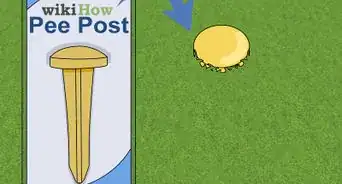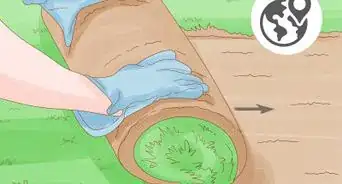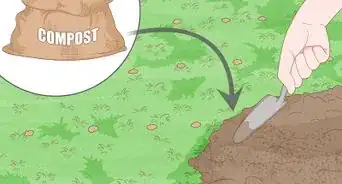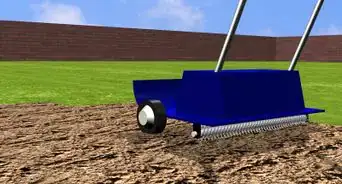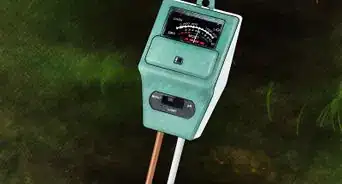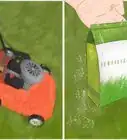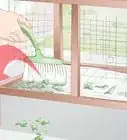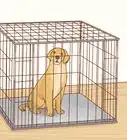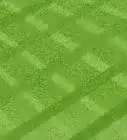This article was co-authored by Mike Garcia. Mike Garcia is a Licensed Landscape Contractor and the Founder of Enviroscape LA, a full-service landscape design and construction firm in Los Angeles, California. With over 30 years of experience, Mike specializes in sustainable landscape practices. Mike holds an Ornamental Horticulture degree, C-27 Landscape Contractor and D-49 Tree Service Contractor licenses, and Permaculture Design, California Naturalist, International Certified Professional Pond Contractor, and Pond Building certifications. He is one of eight Internationally Certified Pond Builders in the world. Enviroscape LA has won landscape and water feature awards from the International Professional Pond Contractors Association (IPPCA), National Association of Pond Professionals (NAPP), and the California Landscape Contractors Association (CLCA). Mike is a past president of the CLCA and currently serves on their local Board of Directors. Enviroscape LA has been featured in PONDS USA Magazine, Pond and Garden Lifestyles Magazine, and the Los Angeles Times. Mike has appeared on Extreme Home Makeover, HGTV's Landscapers Challenge, and A & E's series Fix That Yard.
wikiHow marks an article as reader-approved once it receives enough positive feedback. In this case, 100% of readers who voted found the article helpful, earning it our reader-approved status.
This article has been viewed 101,552 times.
If you enjoy allowing your dog outside without a leash, you may also be having problems with lawn burn. This is a common problem that occurs when your dog's urine damages the grass. Lawn burn is caused by a high-level of nitrogen in dog urine. A small amount of nitrogen can be good for the grass, but an excessive amount can cause damage.[1] You can keep pet urine from damaging your lawn by adjusting your dog’s diet and habits, and by making changes to your lawn.
Steps
Making Changes to Your Lawn
-
1Dilute any urine spots on the lawn right away. As soon as you notice any urine spots on your lawn, you should pour several cups of water on the spot to dilute the urine. Diluting the spots with water can help them to fade faster.[2]
- Another option is to give the entire lawn a watering if there are multiple urine spots on the lawn. Most dogs will go to the bathroom in the same spots in the yard so you may check these areas periodically and water them well if there are urine spots.
-
2Construct an area with mulch or gravel for your dog. You can also address this issue by creating a bathroom area for your dog that is made of gravel, mulch, or artificial turf. This could be located on one side of your yard or in the area where your dog usually goes to the bathroom. Having your dog go on this area will save the rest of your lawn from damage due to urine.[3]
- You should make this area appear more appealing to your dog by placing greenery like potted hostas or ferns around the perimeter of the area.
Advertisement -
3Use urine-resistant grass in your lawn. For a more permanent solution, you should put in grass that is urine-resistant or that can tolerate dog urine. Put in fescue and perennial ryegrass, as these are more resistant than other grasses. As well, any diluted urine on these grasses actually act as fertilizer and help them grow.[4]
- You should avoid Kentucky Bluegrass and Bermuda grass, as these are the most sensitive to urine and will spot easily.
-
4Keep your lawn healthy and well maintained. Making sure your lawn is healthy and maintained on a daily or weekly basis will help to keep it more resistant to urine damage. You should make sure you use nitrogen fertilizer when you fertilize your lawn, as the nitrogen can help to neutralize the urine.[5]
- If you notice the urine spot appears green and there is no browning in the area, you should increase the frequency of fertilization (with nitrogen fertilizer) or the amount of fertilizer to mask the urine spots. You should also make sure you water the law on a frequent basis so the grass stays healthy.
- If you notice the urine spots have turned brown and the grass appears to be dying, you should water the area more frequently to help dilute any salts from the urine that have accumulated in the soil. If the grass eventually dies, consider replacing the dead sod with new grass that is urine-resistant.
-
5Put up a fence to protect your lawn. Fences and motion-sensor sprinklers can be used to keep neighboring dogs from eliminating on the lawn. Put up a wooden or wire fence to protect your lawn from unwanted urine patches.[6]
- You can also use chicken wire to fence around the damaged area so your dog cannot relieving himself on the same spot again.
-
6Post a sign asking dogs and people to stay off your grass. Another way to prevent urine on your lawn is to post a sign at the front of your yard asking dogs and people to “mind the grass”. This could encourage people walking by with their dogs to not let their dogs relieve themselves on your yard.
- You can also politely ask your neighbors to keep their dogs off your lawn. Stop by your neighbors, and let them know that you've been getting lawn damage from their dogs. Politely suggest that they walk their dogs in nearby parks or areas away from your house.
Adjusting Your Dog's Diet and Habits
-
1Keep your dog well-hydrated. Though it may seem counterintuitive to water your dog to prevent urine spots, making sure your dog is well-hydrated can help to dilute the strength of the nitrogen in his urine. You should make sure your dog has enough water throughout the day.[7]
- You can also add water to his canned food or his dried food to ensure he is getting enough liquids.
- Another fun way to keep your dog hydrated is to place ice cubes in a rubber toy. Your dog will then play with the toy and lick the ice cubes.
-
2Give your dog high-quality dog food. Most high-quality dog foods contain higher-quality protein sources, which are easier for your dog to digest and less likely to leave by-products in his urine that could damage your lawn. Look for dog food that has a balanced pH and an ingredients list of mostly or all digestible foods.[8]
- If you have a less active dog, you should look for dog food that is lower in protein. Lower-protein food will mean your dog will release less nitrogen when he pees. Less protein is also good for less active dogs as this will allow them to stay healthy and avoid gaining unnecessary weight.
- Talk to your vet before you change your dog’s diet to ensure it is the right move for your dog.
-
3Train your dog to go to the bathroom on a specific area of the lawn.[9] You can do this by first creating a graveled or mulched area of your lawn that will act as your dog’s outdoor bathroom area. Then, take your dog to this area when he indicates he needs to go to the bathroom. Have him stand in the area while he goes and give him positive reinforcement in the form of a treat once he finishes.[10] [11]
- You may need to continue to bring your dog to the spot and praise him for a period of time until he gets into the habit of using the area.
- You should also maintain this outdoor bathroom so it is appealing to your dog by picking up any feces on the mulch or gravel. You can also spray down the mulch or gravel periodically to remove any urine.
-
4Talk to your vet before you give your dog urine neutralizing supplements. These supplements can be purchased over-the-counter, and claim to help neutralize the nitrogen in your dog’s urine. These medications work by changing the pH of your dog’s urine or by adding salt to your dog’s body. However, these medications can cause health issues in dogs, such as bladder stones or urinary crystals. Make sure you speak to your vet before giving your dog these supplements.[12] [13]
- You should also speak to your vet before adding natural options like gypsum salts or cranberry juice to your dog’s food to balance the pH of his urine.
Expert Q&A
-
QuestionHow do you stop a dog from peeing all over the yard?
 Mike GarciaMike Garcia is a Licensed Landscape Contractor and the Founder of Enviroscape LA, a full-service landscape design and construction firm in Los Angeles, California. With over 30 years of experience, Mike specializes in sustainable landscape practices. Mike holds an Ornamental Horticulture degree, C-27 Landscape Contractor and D-49 Tree Service Contractor licenses, and Permaculture Design, California Naturalist, International Certified Professional Pond Contractor, and Pond Building certifications. He is one of eight Internationally Certified Pond Builders in the world. Enviroscape LA has won landscape and water feature awards from the International Professional Pond Contractors Association (IPPCA), National Association of Pond Professionals (NAPP), and the California Landscape Contractors Association (CLCA). Mike is a past president of the CLCA and currently serves on their local Board of Directors. Enviroscape LA has been featured in PONDS USA Magazine, Pond and Garden Lifestyles Magazine, and the Los Angeles Times. Mike has appeared on Extreme Home Makeover, HGTV's Landscapers Challenge, and A & E's series Fix That Yard.
Mike GarciaMike Garcia is a Licensed Landscape Contractor and the Founder of Enviroscape LA, a full-service landscape design and construction firm in Los Angeles, California. With over 30 years of experience, Mike specializes in sustainable landscape practices. Mike holds an Ornamental Horticulture degree, C-27 Landscape Contractor and D-49 Tree Service Contractor licenses, and Permaculture Design, California Naturalist, International Certified Professional Pond Contractor, and Pond Building certifications. He is one of eight Internationally Certified Pond Builders in the world. Enviroscape LA has won landscape and water feature awards from the International Professional Pond Contractors Association (IPPCA), National Association of Pond Professionals (NAPP), and the California Landscape Contractors Association (CLCA). Mike is a past president of the CLCA and currently serves on their local Board of Directors. Enviroscape LA has been featured in PONDS USA Magazine, Pond and Garden Lifestyles Magazine, and the Los Angeles Times. Mike has appeared on Extreme Home Makeover, HGTV's Landscapers Challenge, and A & E's series Fix That Yard.
Licensed Landscape Contractor Focus on training your dog in new bathroom habits. You can train your dog to pee in certain areas.
Focus on training your dog in new bathroom habits. You can train your dog to pee in certain areas.
Things You'll Need
- Water hose
- Fertilizer and lawn food/turf builders
- Grass seed
- Fence
- Sign
References
- ↑ http://www.todayshomeowner.com/how-to-keep-dogs-from-damaging-your-lawn/
- ↑ http://www.todayshomeowner.com/how-to-keep-dogs-from-damaging-your-lawn/
- ↑ http://thebark.com/content/keep-your-lawn-free-urine-spots
- ↑ http://thebark.com/content/keep-your-lawn-free-urine-spots
- ↑ http://thebark.com/content/keep-your-lawn-free-urine-spots
- ↑ http://aggie-horticulture.tamu.edu/archives/parsons/turf/Dog_lawn_problems.html
- ↑ http://www.todayshomeowner.com/how-to-keep-dogs-from-damaging-your-lawn/
- ↑ http://www.lawn-care-academy.com/lawn-dog-damage.html
- ↑ Mike Garcia. Licensed Landscape Contractor. Expert Interview. 20 November 2020.
About This Article
Unfortunately, pet urine can damage your lawn, but there are a few changes you can make to keep it growing green and healthy. As soon as you notice a urine spot on your lawn, dilute it by pouring several cups of water on it. Watering your lawn on a daily basis can also prevent it from getting damaged. You might also construct an area with mulch or gravel and train your pet to go to the bathroom here. Or, you can just choose a spot of grass that’s hidden. Make sure you give your pet plenty of water to keep it hydrated since this will cut down on the damaging nitrogen in its urine. To learn how to plant urine-resistant grass, read on!

